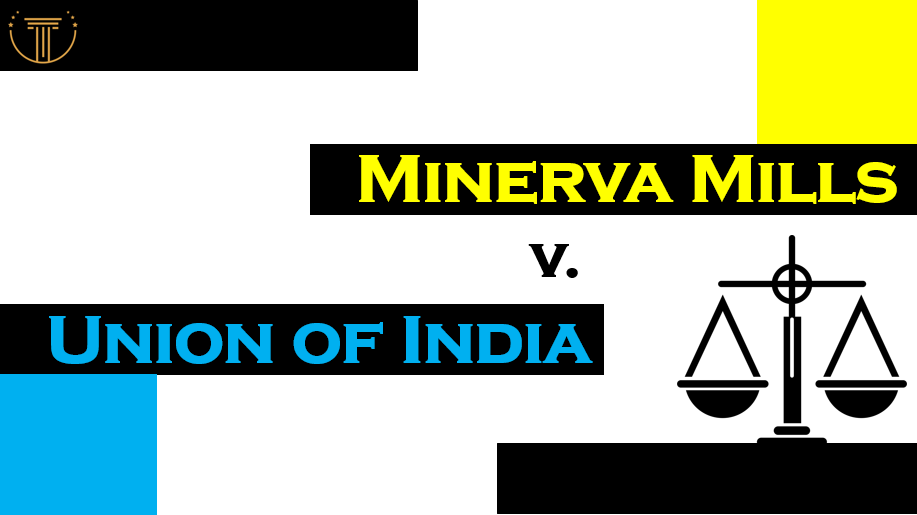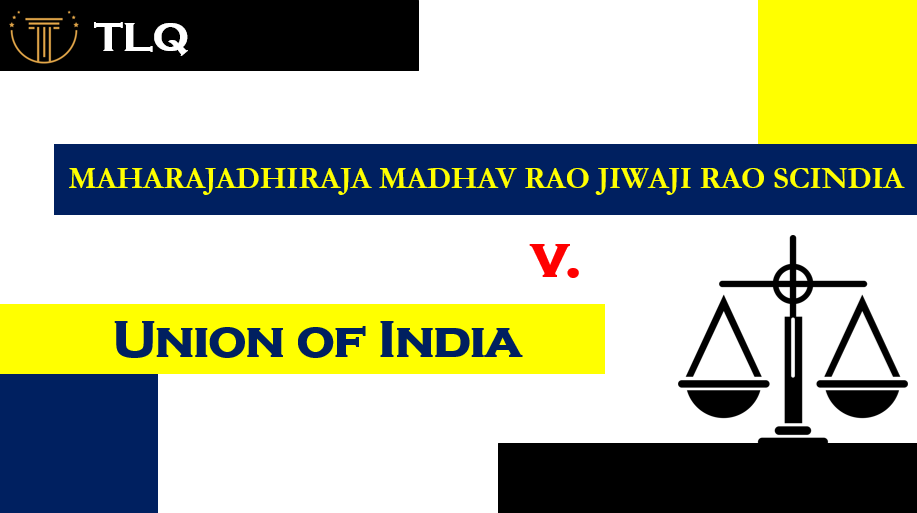Published on 1st May 2025
Authored By: Aanya Sharma
Symbiosis Law School, Pune
Introduction
The Corfu Channel case was the first public international law case heard by the International Court of Justice from 1947 to 1949 after its establishment in 1945. It played a significant role in shaping the future of international law and the International Court of Justice (ICJ). It was between the United Kingdom and the People’s Republic of Albania and concerned the principles of state responsibility, doctrines of innocent passage, and self-help. The case also led to the setting up of a reparation framework that laid down guidelines for assessing compensation in international disputes. The ICJ’s judgment in this case led to the establishment of key precedents not only in maritime law but also led to the reinforcement of various other international law principles and doctrines.
Details of the case
Name of the case
Corfu Channel (United Kingdom of Great Britain and Northern Ireland v. People’s Republic of Albania)
Name of the petitioner
United Kingdom of Great Britain and Northern Ireland
Name of the Respondent
People’s Republic of Albania
Judges
José Gustavo Guerrero (Acting President), Jules Basdevant (President), Alejandro Álvarez, Isidro Fabela, Green Hackworth, Bohdan Winiarski, Milovan Zoričić, Charles de Visscher, Sir Arnold McNair, Helge Klæstad, Abdul Badawi Pasha, Sergei Krylov, John Reed, Hsu Mo, Philadelpho Azevedo, Bohuslav Ečer (ad hoc)[1]
Name of the Court
International Court of Justice
Date of the judgment
25 March 1948 (preliminary objection)
9 April 1949 (merits)
15 December 1949 (Compensation)
Facts of the Case
On 22 October 1946, two British warships, HMS Saumarez and HMS Volage, struck mines in the Corfu Channel over which the People’s Republic of Albania had full territory. This strike caused severe damage and loss of lives. Thirty-six people aboard Saumarez were killed as the warship struck the mine at 2:53 p.m. while the Volage struck a mine at 4:16 p.m., killing eight people. In total forty-four people died while forty-two others were injured, and Saumarez was damaged beyond repair. The UK government accused the Albanian government of either laying down the mines or allowing a third party to do so after the allied forces had previously cleared the waters. The Albanian government denied any claims of involvement in the laying down of mines.
On 12 and 13 November, a mine clearance operation was undertaken by the Royal Navy, called Operation Retail in the Corfu Channel. This operation took place in Albanian territory without any prior permission from the respondent by the petitioner. The Albanian government consequently complained to the United Nations regarding the invasion of its territorial waters due to the operation.
The United Kingdom demanded reparations from Albania on 9 December, 1946. In January 1947, the UK referred the matter to the United Nations Security Council (UNSC). However, the UNSC recommended Albania and the United Kingdom to resolve the dispute in the ICJ under Article 36, paragraph 3 of the United Nations Charter. On 22 May, 1947, the UK applied to the ICJ alleging Albania’s responsibility. On 2 July, 1947, Albania’s communication with the ICJ through a letter, was submitted as its acceptance of the court’s jurisdiction. The president of the court ordered the parties to submit memorials by a set deadline. The Albanian government rejected complying with the orders of the court and instead filed for an objection, whereas the UK adhered to the deadline.
Issues
- Preliminary objection – Whether ICJ has jurisdiction over disputes between the United Kingdom and The People’s Republic of Albania?
- Merits – Whether Albania was responsible for the laying down of mines in the Corfu Channel and the consequential damage caused?
- Counter Claim – Did the United Kingdom violate Albania’s sovereignty by sending warships, and conducting a minesweeping operation, Operation Retail, without the prior consent of Albania?
- Reparation – How much compensation should be awarded to the United Kingdom for damages?
Judgement
Preliminary Objection
Albania contended that the case could only be brought through a special contract. It stated that where in a dispute one of the parties, that is a state, is not bound to be subject to the court’s jurisdiction, the only way a case can be brought is by special agreement. It further supported its argument with the help of the Article 26(1) and 40(1) of the ICJ statute. Additionally, it was argued that the Security Council resolution could not compel Albania to support accepting the jurisdiction. The ICJ ruled that it had jurisdiction since Albania implicitly accepted it through its communication. The judgment was delivered on 25 March 1948.
Merits and Counterclaim
The court delivered the judgment on 9 April 1949. It ruled partly in favor of Albania and partly in favor of the United Kingdom. The judgment included decisions regarding key issues of Albania’s responsibility, the United Kingdom’s counterclaim, and the rejection of the self-help doctrine and the right of innocent passage. The court also held that the transition of the warships by the United Kingdom into the Albanian waters on 22 October 1946, did not amount to the invasion of its state sovereignty.
- Albania’s responsibility – The ICJ stated that Albania might not have itself laid down the mines given its condition during that time, it could not carry out such operations. However, the fact that it had exclusive control over its waters constituted as indirect evidence and circumstantial facts to the question. Thus, it had a responsibility to notify about the navigational hazards to the other states.
- United Kingdom’s Counter claim – ICJ ruled in favor of UK stating that it had a right to innocent passage through the strait. The Albanian government had the right to impose regulations on the passage through the strait, but to a certain limit, not to an extent where the passage of warships was outrightly barred. However, it violated Albanian sovereignty by conducting Operation Retail in the strait. The UK’s argument that it was a justified intervention was turned down by the court, while stating that such instances in the past have often resulted in the most serious abuses and cannot find a place in the international law.
- Rejection of Self Help doctrine – The court rejected UK’s claim that Operation Retail was justified as a self help or self protection. It held that Albania’s actions related to the mines did not validate Operation Retail conducted by the UK in the strait. It stated that the state has the responsibility to respect the territorial sovereignty of other states. It is an integral principle of international law.
Reparation
On 15 December 1949, Albania was ordered to pay £843,947[2] as damages to the United Kingdom as compensation for the damage caused due to the explosion of mines. The ICJ appointed a committee consisting of two officers of the Royal Netherlands Navy to calculate the compensation to be awarded to the UK. The amount of compensation was further divided into three parts. £700,087 for the loss caused to Saumarez, £93812 for the loss caused to Volage and £50,048 for the casualties[3]. The court also clarified that it had the power to determine appropriate compensation and hence to fix it as well as granted by the special agreement.
Analysis
The Corfu Channel case is the earliest and most influential case of the ICJ. This case led to the development of certain significant legal principles in international law, particularly with regards to state responsibility, right of innocent passage, territorial sovereignty, self, and the reparation framework. Even though this case was not explicitly related to environmental law, it has affected the development of international environmental law along with cases such as the Trail Smelter Case and the Barcelona Traction case. Furthermore, it led to the development of the Law of the Sea, thereby influencing the provisions of the United Nations Convention on the Law of the Sea. The legal principles are as follows-
- State Responsibility – This principle states that the state can be held liable for acts and omissions causing harm to other states based on indirect evidence and circumstantial facts.
- Sovereignty and Self Help – It expresses that a state must not perform actions which violate another state’s sovereignty, even if those actions are for security reasons.
- Reparation Framework – Set guidelines were derived from the reparation granted by the ICJ in this case, which were required for assessing compensation in future international disputes.
The Corfu Challenge case also raised some significant concerns about the balance between the state sovereignty and security. While deciding on the matter of right to innocent passage and state responsibility, it failed to provide a robust enforcement mechanism. The court’s decision emphasized the primacy of international law but also highlighted the limitations of the judicial enforcement, by the fact that Albania did not comply with the court orders immediately. Overall, while the case is acknowledged as a landmark one with regards to the development of maritime law, it demonstrates the challenges faced while ensuring compliance with international legal standards.
Conclusion
In closing, the Corfu Channel Case remains a foundational case of international law which set procedural precedents for ICJ cases. The ICJ’s ruling laid down key principles and judgments which to this day, guide international law and maritime disputes. The case reinforced the state responsibility and other principles, illustrating the complex interplay between them. The case provides a balanced framework on navigating the tensions between national sovereignty and global navigation rights.
References
[1] Corfu Channel Case (2024) Wikipedia. Available at: https://en.wikipedia.org/wiki/Corfu_Channel_case (Accessed: 28 February 2025).
[2] Corfu Channel Case (2024) Wikipedia. Available at: https://en.wikipedia.org/wiki/Corfu_Channel_case (Accessed: 28 February 2025).
[3] Corfu Channel Case (2024) Wikipedia. Available at: https://en.wikipedia.org/wiki/Corfu_Channel_case (Accessed: 28 February 2025).


